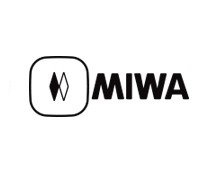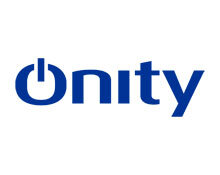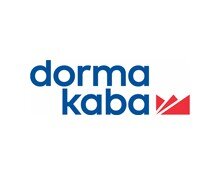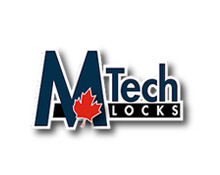Hospitality lock systems
Choosing the right hospitality lock system is crucial for ensuring guest safety and streamlining operations. As technology advances, more properties are transitioning to keyless locks to enhance security, improve the guest experience, and simplify staff workflows. Understanding different lock system integrations—whether magnetic stripe, RFID, Bluetooth, or mobile key solutions—is key to making an informed decision for your property. In this guide, we break down the major types of lock integrations available for hotels (and other property types), and how they can seamlessly work with your property management system (PMS) to create a smarter, more efficient check-in process.
- 1. Key card / Wristband
Key card / Wristbands
How it works
Key cards and wristbands are physical keys that are encoded via RFID, NFC, or magnetic stripe encoders, and are issued to guests at the front desk. They can also be programmed to allow access to restricted areas in addition to the guest room, for example, the gym and pool. Key card integrations create a more efficient front desk check-in experience.
When integrated with a key card system, WebRezPro communicates reservation information (check-in/check-out dates and room number) to the property’s key card encoder, eliminating the need to enter this information into the key card system manually.
Integration setup
WebRezPro’s key encoder app is installed on the same computer as the key card software. This app functions as a relay between the property’s WebRezPro system and their key card software, activating the key card encoder as needed.
In action
- The guest goes to the front desk to check in.
- The front desk agent opens the guest’s reservation folio and selects the option to make a new key. WebRezPro automatically communicates the relevant data to the key card encoder. Duplicate keys can also be created from the reservation folio.
- The front desk agent swipes the key card through the encoder to encode it, then gives it to the guest.
- The key card is valid for the duration of the booking and is automatically deactivated at the property’s check-out time on the departure date.
- If the guest wants to extend their stay, a new key card can be encoded for the updated reservation.
Providers
dormakaba (Ambiance/Saflok), AssaAbloy (Visionline), MIWA, Salto, Onity
- 2. Key pad
Key Pad (PIN Pad)
How it works
When integrated with a key code system, WebRezPro automatically communicates reservation information to the lock provider whenever a reservation is created or edited so that you don’t have to enter this information into your key code system manually. The lock provider then generates a unique key code for the booking and automatically adds it to the reservation folio in WebRezPro.
Integration setup
WebRezPro connects to the key code system via the cloud, using the lock provider’s API key. No extra software is installed on the property’s computer.
In action
- Whenever a reservation is created or edited (internally or by guests booking online), WebRezPro automatically sends reservation data to the key code system. (Reservations must have an email address, phone number, and room assigned.)
- In most cases, the integration is configured so that the key code system automatically generates a key code and adds it to the reservation in WebRezPro whenever a booking is created. Some integrations can be set to manual key code generation, requiring the front desk agent to generate the key code by selecting the “generate access code” option from the reservation folio.
- The key code can be sent to the guest directly from WebRezPro (in the pre-arrival/check-in email template), automatically or manually triggered by front desk staff. Alternatively, the key code can be sent to the guest by text/email from the key code system or via a connected guest messaging integration, depending on setup.
- The key code is automatically activated and deactivated based on the property’s check-in and check-out times.
Providers
RemoteLock, Operto, PointCentral, dormakaba Oracode, Lynx
- 3. Mobile phone
Mobile phone (Bluetooth/NFC)
How it works
Whenever a reservation is created or edited, WebRezPro sends reservation information (stay dates, room number, and guest contact information) to the mobile key system, which generates a digital key for the booking and sends it to the guest’s mobile phone upon check-in. This digital key allows the guest to unlock their guestroom (and other authorized areas of the hotel) wirelessly via Bluetooth or NFC by holding their phone close to the door lock.
Mobile keys can be implemented without replacing existing lock systems, making it easy to upgrade. A Bluetooth device from your mobile key provider can be installed into your existing locks, enabling mobile key compatibility while also maintaining key card functionality.
Integration setup
WebRezPro communicates with the mobile key system via the cloud, using the lock provider’s API key. No extra software is installed on the property’s computer.
In action
- When a reservation is created or edited (internally or by guests booking online), WebRezPro automatically sends reservation data to the mobile key system.
- The mobile key system generates and stores a digital key for the booking.
- Upon guest check-in,* the mobile key system sends the guest a text message with a link to download/open the mobile key app. The guest must download the key to use it to unlock their room.
- The mobile key is automatically activated upon check-in and deactivated upon the guest’s scheduled check-out day and time.
*Front desk agents can quickly and easily update reservation status to “checked-in” from WebRezPro’s Due-in report, triggering mobile key delivery.
Providers
Openkey, Loxe, Goki
- 4. Hybrid solution
Key card + Mobile phone
A hybrid option allows properties to issue both a plastic key card and mobile key for the same reservation. In this case, WebRezPro may need to be integrated with both a key card system and a mobile key system (two integrations).
Example
The process outlined below is an example of how a hybrid solution can work. This process may differ between third-party systems. Follow the instructions from your key providers.
- The guest goes to the front desk to check in or request a plastic key card.
- a) If the guest requests a plastic key card after they have downloaded the mobile key or the key code has been activated, the front desk agent can create a duplicate key from the reservation folio.
b) If the guest has not yet downloaded the mobile key and requests a plastic key card, the front desk agent can encode a new key card from the reservation folio. Note: If the guest subsequently downloads their mobile key, the plastic key card may be automatically deactivated. In that case, the front desk agent can create a duplicate key card. - Both the mobile key and duplicate key card will be valid for the duration of the guest’s booking.
Providers
AssaAbloy + Openkey, dormakaba + Openkey, dormakaba + Operto
Keyless lock benefits
- Streamline the check-in process
- Simplify access management
- Improve the guest experience
- Enable contactless guest self-check-in
- Reduce environmental footprint
FAQ
If WebRezPro sends a reservation to the mobile key system without a required data point (e.g., mobile phone number), the key cannot be created. The property will need to reach out to the guest to request their mobile number, then manually add it to the guest’s reservation in WebRezPro. Once the reservation is updated, the integration will send it to the mobile key provider, and the key will be created.
Mobile keys: If the guest loses their phone, you can manually deactivate their mobile key within the mobile key system and issue a key card instead.
Key codes: For security reasons, a new key code should be provided to the guest by manually deactivating the code and generating a new key code for the reservation in the key system. The new key code can then be manually added to the reservation.
If the guest has deleted the message containing the key code, and they can’t remember it, they will need to contact your front desk for the code, which can be found on their reservation.
Very. Mobile key systems use powerful encryption and verification technology to keep guests’ personal information safe and their room secure. Even if the guest’s phone is lost or stolen, the mobile key is protected first by the password, passcode, or fingerprint ID required to access the phone, then by the password, passcode, or fingerprint ID required to access the mobile room key. On top of that, mobile keys are transmitted in real time (only within range of the door lock) via a secure channel.
No, mobile keys can only be sent to a mobile phone number. A mobile phone number is required to verify the guest and deliver the key.
It depends on the mobile key system. Most systems are compatible with Android and iOS devices.
The guest’s phone will need to be connected to the internet / Wi-Fi to download their mobile key. Once the key is downloaded to the guest’s phone, they may or may not need to be connected to the internet to use it, depending on the hotel’s Bluetooth hardware.
Mobile keys can be delivered to separate guests within a group as long as a mobile phone number is entered for each reservation/room. Some mobile key providers offer the ability to access multiple rooms with a single mobile key that can be shared among guests.
Yes. Once the primary guest downloads the mobile key, they can share it with additional guests on the reservation.
Yes, as long as the mobile phone number delivered to the mobile key system from the PMS includes the country code in the correct format. (Check with your mobile key provider.)
It depends on the key provider. In many cases, you can choose to send the key from WebRezPro or the key code system. If you have a guest messaging integration, you can choose to send the key code from the guest messaging platform.
Yes. Key codes can be automatically added to new reservations and included in auto-sent pre-arrival/check-in email templates in WebRezPro. Depending on the key code provider, key codes may be sent by the key system instead (by email or text message). Alternatively, key codes can also be included with reservation data delivered to an integrated guest messaging / self check-in app.
No. The best way to manage key codes for multi-room reservations is to split the reservation in WebRezPro, then generate key codes for each individual reservation.
Some integrations can automatically update the reservation status in WebRezPro.* Alternatively, property staff can see when keys have been activated from within the key system, then perform a quick bulk check-in for multiple reservations at once in WebRezPro.
*Currently, Goki offers this functionality.
Key codes: The key code can be sent to the guest from WebRezPro (automatically or manually) via the check-in email, or it can be sent directly from the key system, depending on how the integration is configured. The key code will be valid for the duration of the reservation (from check-in time to check-out time as configured by the property).
Mobile keys: Once reservation status is updated to “checked-in” in WebRezPro, the mobile key provider automatically sends a text message to the guest with a link to retrieve their mobile key, which will be active until the guest’s scheduled check-out day and time. The guest will need to download* the mobile key app to retrieve their key and unlock their door.
*If the property is using an integrated mobile check-in / guest messaging app that delivers the key instead of the mobile key provider, the guest may not have to download the mobile key app in order to retrieve their mobile key.
Glossary of lock terms
RFID
RFID, or Radio-Frequency Identification, is a technology used to identify objects using radio waves.
NFC
NFC, or Near Field Communication, is a short-range wireless communication technology that enables devices to exchange data when they are in close proximity, typically within a few centimeters. It is a subset of RFID technology, but with a much shorter range and more specific use cases.
Magnetic stripe
A magnetic stripe is a type of data storage technology that uses magnetic properties to store information.
Bluetooth
Bluetooth is a wireless communication technology that allows devices to exchange data over short distances using radio waves. It is designed to replace the cables connecting devices, maintaining high levels of security.

















